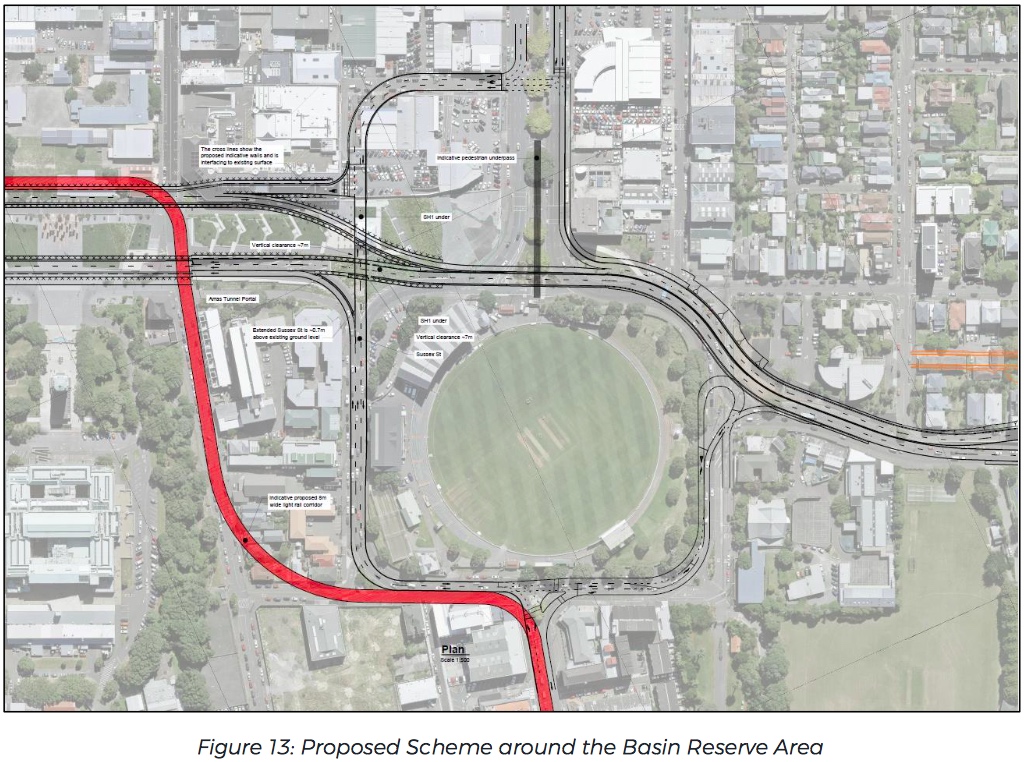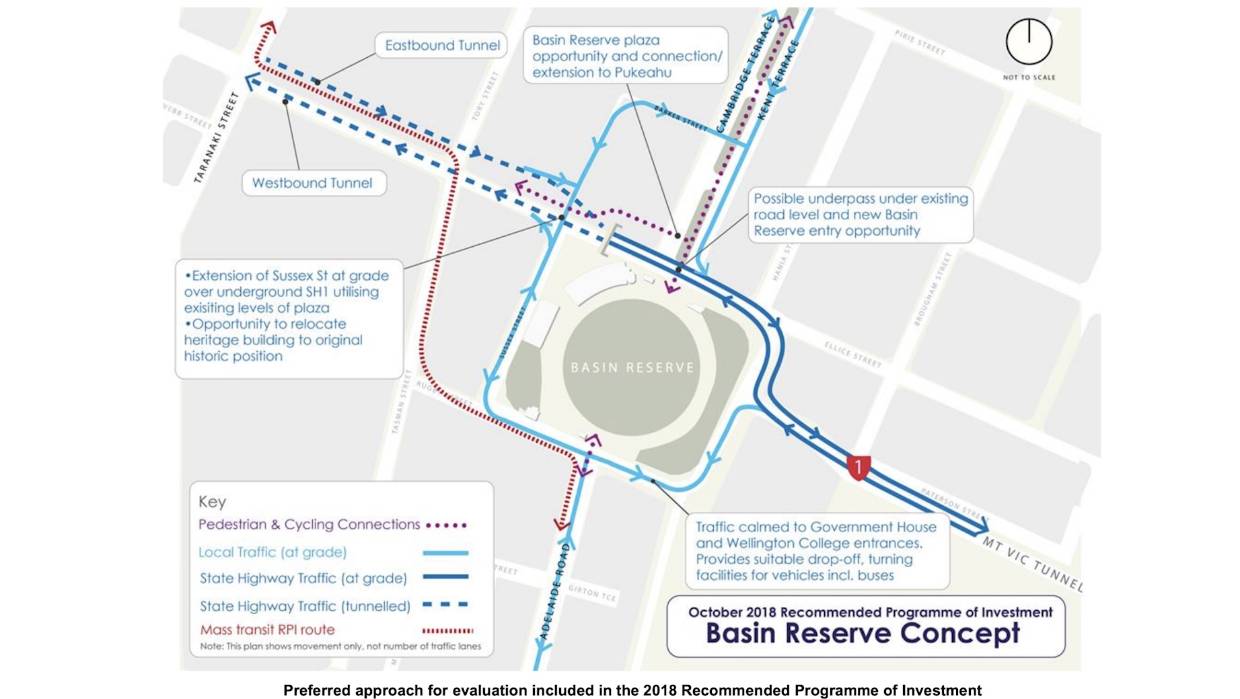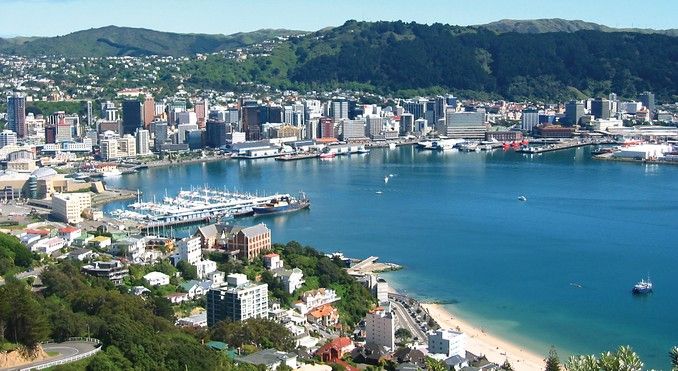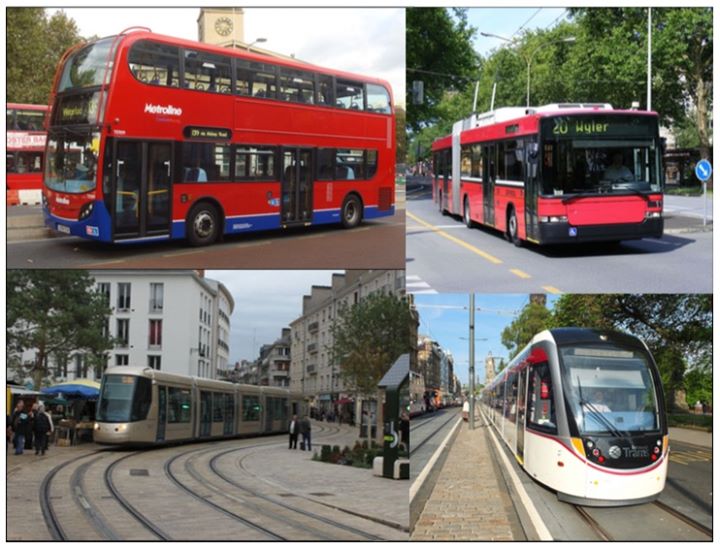For a long time, since the final defeat of the previous Basin Reserve flyover proposal in 2015, all we’ve had to go on are private assurances that whatever plans eventually emerged would not include a new Basin Reserve flyover. But it’s taken until the past few weeks, with the release of a slew of Let’s Get Wellington Moving reports and technical documents, to get some idea of what those plans entail.
The good news is that those private assurances have now been backed up by publicly released information. The roading changes proposed around the Basin do indeed seem to avoid bridges or flyovers – though there is an underpass proposed for walking and cycling use for those entering the ground from the north, and without careful design, underpasses can be exactly the sort of places pedestrians and cyclists don’t want to go.


The redoubtable and well-informed “Leviathan” has put up an excellent and very informative post on the Eye of the Fish blog on LGWM’s plans for the Basin Reserve area, evidently drawing on the recently-released trove of LGWM documents, and including the two diagrams above plus Leviathan’s own drawings of how these might look in context:
The diagrams released by LGWM were developed in the assumption that Karo Drive undergrounding would be included in the funded package – but it wasn’t. So a current question is: what if any design changes near the Basin will result from that?
While the overall picture of Let’s Get Welly Moving with regards to the Basin is encouraging, the level of detail available to the public remains vague enough that continued vigilance is needed – just as it is to ensure that the project meets its overall goals of reducing transport emissions, reducing dependence on private cars, and promoting walking, cycling, public transport and rapid transit.

